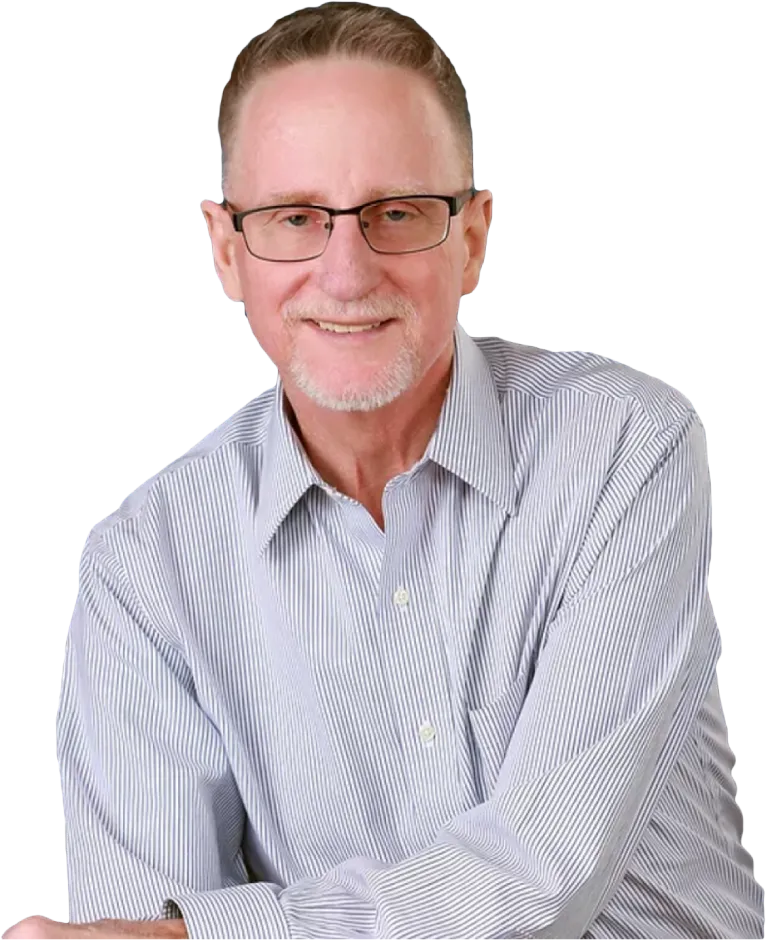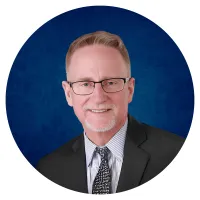SCOTT MASSEY
Inspirational Speaker
& Resilience Coach

FROM HIGH SCHOOL DROPOUT TO PHD
I started drinking when I was 12 and became a high school dropout by the time I was 15. In my twenties, I was waking up without knowing where I was or how I got there. My life didn't have meaning or purpose.
After thirty years of alcohol abuse, I decided to check into rehab and made an action plan for my life. It's been a difficult journey, but I'm almost 20 years sober now.
was a high school dropout, addicted to alcohol, and lacked hope. Now, I have a PhD, teach at the university level, and successfully run two businesses. I know adversity. I know struggle. And I know success.
Now I want to help you unleash the power to transform your life.
YOU HAVE THE POWER TO CHANGE THE TRAJECTORY OF YOUR LIFE
I believe each person has the ability to transform their life. Regardless of your past, you can make your future successful. Whether you’re struggling with addiction, broken relationships, or financial issues, you can enhance your life.
TESTIMONIALS
Dr. Scott Massey’s ability to talk with others about his past and how he got through it is amazing. Two members of my family struggle with alcoholism, and it’s difficult to watch, so his story resonated with me. He has and will continue to help others with their personal struggles.
—Katlyn B.
I have a lot of respect for Scott as a person. I’m twenty-two and living the young, “fun” stage of life, but his talk helped me realize the decisions I need to make now. I enjoyed his presentation; he spoke fearlessly.
—Danielle C.
Scott is incredibly inspiring! He took control of his life even when he didn’t have others supporting him. I enjoyed hearing his story. He did a great job making it relatable to everyone and challenged us to reflect on our own lives.
—Ellie W.
I felt the most impact when Dr. Massey talked about what makes him a better person. I personally deal with anxiety and think about things I can’t do instead of focusing on what I can do. After hearing Dr. Massey share his motivations, though, I’m inspired to set my mind on the things I can do!
—Danielle C.
Listening to Scott gave me hope for my future. He posed challenging questions that truly got me thinking. I think others can benefit from reflecting on his story and his questions, too.
—Brittany S.
Scott has a powerful story and I hope he continues to share it. He realized he wasn’t the person he wanted to be, so he made decisions that turned his life around. He created a plan of action and changed his life—we can do the same.
—Isaac D.
BOOK AN APPOINTMENT
Scott Massey is available for coaching or speaking at your next event!
Take the first step and book an appointment with Scott today!
RECENT POSTS

Why Modern Graduate Students Are Nothing Like Their Parents' Generation: Old School Meets the Information Age
Volume 4: Old School Meets the Information Age
Welcome back, and thank you as always for joining me.
Graduate education has fundamentally shifted, particularly within medical programs, revealing a new generation of learners unlike any before them. Students of the Information Age view medical knowledge through a distinctly different lens, because they have experienced constant technology exposure since birth. Such differences create promising opportunities and notable obstacles for educational institutions seeking to serve them effectively.
We’ve spent the last few blogs exploring the question of students raised in the information age, who enter medical graduate programs with remarkable technological fluency, yet simultaneously struggle with cognitive challenges directly stemming from their digital upbringing. While our new medical graduate students may masterfully navigate technology for their personal needs, some lack the critical abilities to synthesize, produce, evaluate, and share data in a professional setting. And a professional setting is where they are hopefully all heading!
The contradiction is a challenge for medical programs attempting to harness students' technical comfort while strengthening their analytical weaknesses. Today, I’m concluding my discussion, which has served as both a trip down memory lane and a glimpse into the future of education.
THE PROS, simplified
These Information Age students possess strengths different from those of their predecessors. They locate information with remarkable efficiency, without the need to rely on memorization. Visual and collaborative environments are their natural learning preferences (as opposed to lectures). They expect education to remember this and teach them accordingly.
Ease with technology opens doors for these students and gives them the option for individualized learning journeys, plus immediate assessment of their strengths and areas needing improvement.
We can’t deny that a massive medical information storage is now at their fingertips, with ever-improving technology allowing for its accessibility and use.
THE CONS, simplified
Meanwhile, excessive dependence on digital tools potentially undermines essential cognitive abilities. Despite “kids these days” being optimistic about their multitasking ability, the human brain is still fairly bad at this. Focusing on several inputs at once almost inevitably reduces sustained attention and comprehension.
These students grab for abbreviated content and quick consumption, at the expense of meaningful engagement.
While their digital comfort enables personalized learning previously unimaginable, it simultaneously risks compromising sustained attention and analytical thinking skills essential to medical practice.
Awareness and Compromise
Educators who completed their training in previous eras face a balancing act: integrating technological tools while nurturing cognitive development. We still need to teach in environments that promote deep thinking, without alienating Information Age students or outright denying the usefulness of technological enhancements.
Medical education faces no greater challenge than bridging the cognitive gulf between faculty members educated in analog environments and students who have exclusively known digital information ecosystems. Faculty resistance to adapting serves no one—not students, not institutions, and certainly not patients. Similarly, students benefit significantly from recognizing the value in traditional cognitive practices like deep reading and extended analysis—skills their digital upbringing may have inadvertently diminished.
These challenges coexist with genuine opportunity. Thoughtfully implemented microlearning approaches, AI-enhanced feedback systems, and collaborative digital platforms can enhance medical education when balanced with time-tested educational approaches. Success lies not in choosing between technological and traditional methods but in finding meaningful harmony between technological advancement and cognitive development.
While digital natives process information differently than previous generations, the essential purpose of medical graduate education remains constant: cultivating knowledgeable, skilled, and compassionate healthcare professionals. Successful programs will avoid rigid adherence to outdated methods and wholesale abandonment of proven educational principles. Instead, they will create learning environments that honor students' digital fluency while nurturing the deep thinking that medical excellence demands.
SCOTT MASSEY

Inspirational Speaker
& Resilience Coach

FROM HIGH SCHOOL DROPOUT TO PHD
I started drinking when I was 12 and became a high school dropout by the time I was 15. In my twenties, I was waking up without knowing where I was or how I got there. My life didn't have meaning or purpose.
After thirty years of alcohol abuse, I decided to check into rehab and made an action plan for my life. It's been a difficult journey, but I'm almost 20 years sober now.
was a high school dropout, addicted to alcohol, and lacked hope. Now, I have a PhD, teach at the university level, and successfully run two businesses. I know adversity. I know struggle. And I know success.
Now I want to help you unleash the power to transform your life.

YOU HAVE THE POWER TO CHANGE THE TRAJECTORY OF YOUR LIFE
I believe each person has the ability to transform their life. Regardless of your past, you can make your future successful. Whether you’re struggling with addiction, broken relationships, or financial issues, you can enhance your life.
TESTIMONIALS
Dr. Scott Massey’s ability to talk with others about his past and how he got through it is amazing. Two members of my family struggle with alcoholism, and it’s difficult to watch, so his story resonated with me. He has and will continue to help others with their personal struggles.
—Katlyn B.
I have a lot of respect for Scott as a person. I’m twenty-two and living the young, “fun” stage of life, but his talk helped me realize the decisions I need to make now. I enjoyed his presentation; he spoke fearlessly.
—Danielle C.
Scott is incredibly inspiring! He took control of his life even when he didn’t have others supporting him. I enjoyed hearing his story. He did a great job making it relatable to everyone and challenged us to reflect on our own lives.
—Ellie W.
I felt the most impact when Dr. Massey talked about what makes him a better person. I personally deal with anxiety and think about things I can’t do instead of focusing on what I can do. After hearing Dr. Massey share his motivations, though, I’m inspired to set my mind on the things I can do!
—Danielle C.
Listening to Scott gave me hope for my future. He posed challenging questions that truly got me thinking. I think others can benefit from reflecting on his story and his questions, too.
—Brittany S.
Scott has a powerful story and I hope he continues to share it. He realized he wasn’t the person he wanted to be, so he made decisions that turned his life around. He created a plan of action and changed his life—we can do the same.
—Isaac D.
BOOK AN APPOINTMENT
Scott Massey is available for coaching or speaking at your next event!
Take the first step and book an appointment with Scott today!
RECENT POSTS

Why Modern Graduate Students Are Nothing Like Their Parents' Generation: Old School Meets the Information Age
Volume 4: Old School Meets the Information Age
Welcome back, and thank you as always for joining me.
Graduate education has fundamentally shifted, particularly within medical programs, revealing a new generation of learners unlike any before them. Students of the Information Age view medical knowledge through a distinctly different lens, because they have experienced constant technology exposure since birth. Such differences create promising opportunities and notable obstacles for educational institutions seeking to serve them effectively.
We’ve spent the last few blogs exploring the question of students raised in the information age, who enter medical graduate programs with remarkable technological fluency, yet simultaneously struggle with cognitive challenges directly stemming from their digital upbringing. While our new medical graduate students may masterfully navigate technology for their personal needs, some lack the critical abilities to synthesize, produce, evaluate, and share data in a professional setting. And a professional setting is where they are hopefully all heading!
The contradiction is a challenge for medical programs attempting to harness students' technical comfort while strengthening their analytical weaknesses. Today, I’m concluding my discussion, which has served as both a trip down memory lane and a glimpse into the future of education.
THE PROS, simplified
These Information Age students possess strengths different from those of their predecessors. They locate information with remarkable efficiency, without the need to rely on memorization. Visual and collaborative environments are their natural learning preferences (as opposed to lectures). They expect education to remember this and teach them accordingly.
Ease with technology opens doors for these students and gives them the option for individualized learning journeys, plus immediate assessment of their strengths and areas needing improvement.
We can’t deny that a massive medical information storage is now at their fingertips, with ever-improving technology allowing for its accessibility and use.
THE CONS, simplified
Meanwhile, excessive dependence on digital tools potentially undermines essential cognitive abilities. Despite “kids these days” being optimistic about their multitasking ability, the human brain is still fairly bad at this. Focusing on several inputs at once almost inevitably reduces sustained attention and comprehension.
These students grab for abbreviated content and quick consumption, at the expense of meaningful engagement.
While their digital comfort enables personalized learning previously unimaginable, it simultaneously risks compromising sustained attention and analytical thinking skills essential to medical practice.
Awareness and Compromise
Educators who completed their training in previous eras face a balancing act: integrating technological tools while nurturing cognitive development. We still need to teach in environments that promote deep thinking, without alienating Information Age students or outright denying the usefulness of technological enhancements.
Medical education faces no greater challenge than bridging the cognitive gulf between faculty members educated in analog environments and students who have exclusively known digital information ecosystems. Faculty resistance to adapting serves no one—not students, not institutions, and certainly not patients. Similarly, students benefit significantly from recognizing the value in traditional cognitive practices like deep reading and extended analysis—skills their digital upbringing may have inadvertently diminished.
These challenges coexist with genuine opportunity. Thoughtfully implemented microlearning approaches, AI-enhanced feedback systems, and collaborative digital platforms can enhance medical education when balanced with time-tested educational approaches. Success lies not in choosing between technological and traditional methods but in finding meaningful harmony between technological advancement and cognitive development.
While digital natives process information differently than previous generations, the essential purpose of medical graduate education remains constant: cultivating knowledgeable, skilled, and compassionate healthcare professionals. Successful programs will avoid rigid adherence to outdated methods and wholesale abandonment of proven educational principles. Instead, they will create learning environments that honor students' digital fluency while nurturing the deep thinking that medical excellence demands.

